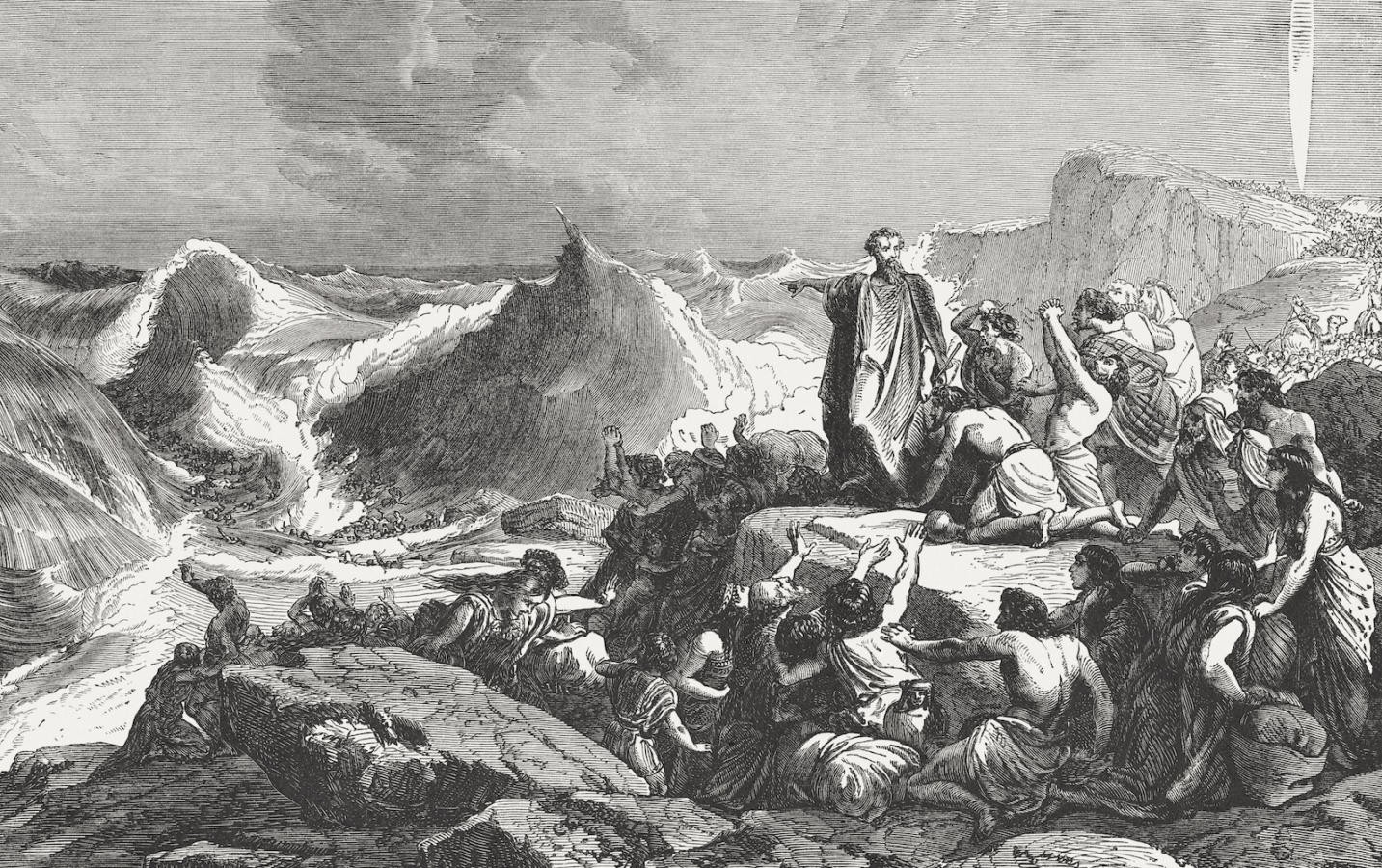Commentary on Parashat Vaera, Exodus 6:2-9:35
In last week’s Torah portion, we saw that Moses fiercely resisted God’s call to lead the Israelites and God had to reassure him of success multiple times before he finally acquiesced. But after returning to Egypt, Moses’s first confrontation with Pharaoh shook the little faith he had. When Pharaoh refused to free the Israelites and instead made their work even harder, Moses demanded an accounting of God’s actions: “Ever since I came to Pharaoh to speak in Your name, he has dealt worse with this people; and still You have not delivered Your people!” (Exodus 5:22-23) In the last verse of that Torah portion, God offers Moses more words of reassurance.
In this week’s Torah portion, Vaera, Moses again challenges God. After telling the Israelites what God has planned for them and learning that they don’t believe it, Moses again turns to God in frustration: “The Israelites would not listen to me; how then should Pharaoh heed me?” (Exodus 6:12) Again, God doesn’t reprimand Moses for his harsh criticism.
God knows that Moses must express his full range of emotions because genuine relationships require honesty. For those who experience loss, the idea that God can handle our challenging questions can shape a healthy response to grief.
Loss can deplete us through endless varieties. For some, it is the shock of a sudden and unexpected death of a young family member. For others, it is the agony of slowly losing a loved one to a ravaging disease. When we lose people who were part of our daily lives and find our entire world turned upside down. Sometimes, we lose people with whom we have not been close in a long time, and find ourselves surprised at the emotional impact of that loss.
With your help, My Jewish Learning can provide endless opportunities for learning, connection and discovery.
Parashat Vaera uses an expression that aptly expresses loss’s demoralizing impact: kotzer ruach (Exodus 6:9), literally, a shortening of the soul. In the context of the biblical text, it describes what slavery has done to the Israelites — how it has diminished them spiritually. The Ramban, a medieval Torah commentator, interprets kotzer ruach through the experience of grief: “…a person whose soul is grieved on account of his misery and who does not want to live another moment in his suffering even though he knows that he will be relieved later.” We know how a loss can empty our souls and make us question our will to live — and make us question God’s compassion, as did Moses.
But after we say angry words or think bitter thoughts, we may worry God will punish us more. Others who listen to our doubts may reinforce our fears by exclaiming, “You shouldn’t say such things.” Parashat Vaera teaches us that God can handle our anger and prefers our honesty to silence, which is an offramp from a relationship with God. God won’t punish us for expressing our emotions, for God understands that questioning God’s compassion will enable us to replenish our souls and emerge strengthened from the long walk of grief that begins with loss.
How can we pray for hope if we cannot express our anguish? If we are not permitted to lament our despair and wonder if life is worth living, how will we find the strength to carry on? Losing a loved one is soul-crushing. God knows we need to question God, as Moses did centuries ago. And like Moses, God won’t punish us for expressing our emotions. God understands that questioning Divine compassion will enable us to re-experience God’s blessing and emerge strengthened from the long walk of grief.
This article initially appeared in My Jewish Learning’s Reading Torah Through Grief newsletter on Jan. 20, 2023. To sign up to receive this newsletter each week in your inbox, click here.
Looking for a way to say Mourner’s Kaddish in a minyan? My Jewish Learning’s daily online minyan gives mourners and others an opportunity to say Kaddish in community and learn from leading rabbis.



